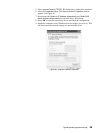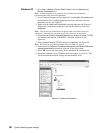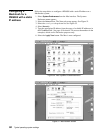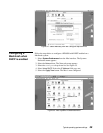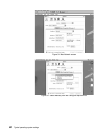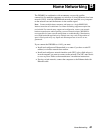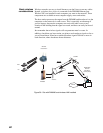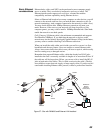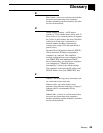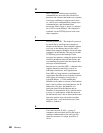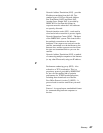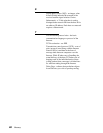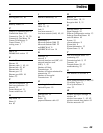
66 Glossary
H
I
L
Host - In packet- and message-switching
communications networks, the collection of
hardware and software that makes use of packet
or message switching to support user-to-user,
i.e., end-to-end, communications, interprocess
communications, and distributed data
processing. More simply, a server or computer
on a LAN or on the Internet. The computer is
reachable via the TCP/IP protocol suite from
other computers.
Internet protocol (IP) - The method or protocol
by which data is sent from one computer to
another on the Internet. Each computer (known
as a host) on the Internet has at least one IP
address that uniquely identifies it from all other
computers on the Internet. The protocol within
TCP/IP that governs the breakup of data
messages into packets, routing the packets from
sender to destination network and station, and
reassembling the packets into the original data
messages at the destination.
Internet service provider (ISP) - A business that
supplies Internet connectivity services to
individuals, businesses, and organizations.
Some ISPs are large national or multinational
corporations that offer access in many locations,
while others are limited to a single city or
region.IP address - a 32-bit number that
identifies each sender or receiver of information
that is sent in packets across the Internet. An IP
address has two parts: the identifier of a
particular network on the Internet and an
identifier of the particular device (which can be
a server or a workstation) within that network.
On the Internet itself - that is, between the router
that move packets from one point to another
along the route - only the network part of the
address is looked at.
Local area network (LAN) - a group of
computers and associated devices that share a
common communications line and typically
share the resources of a single processor or
server.



